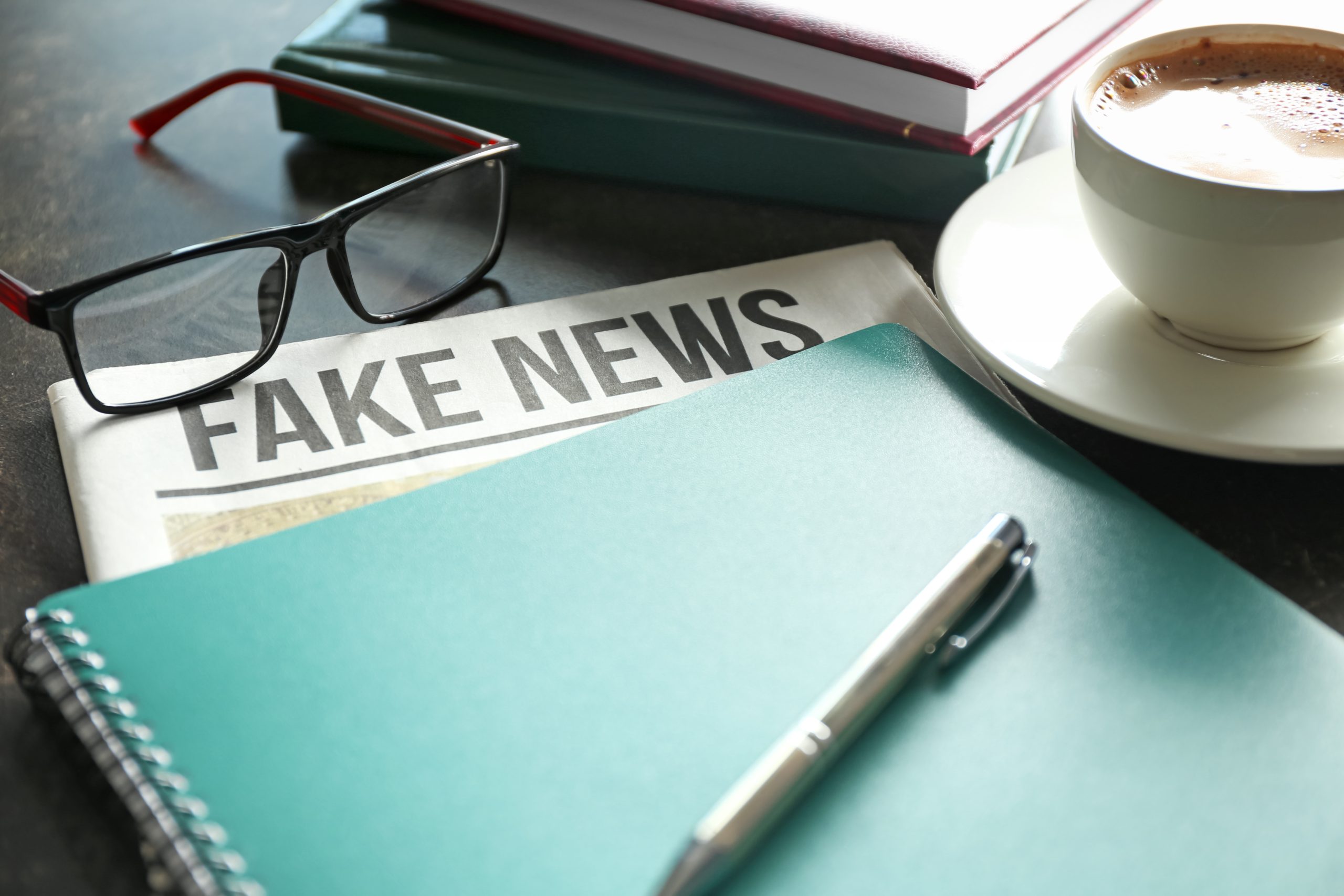In 2017, “fake news” was labeled “Word of the Year” by Collins Dictionary. Since then, you’d be hard-pressed to scroll through any media site or news channel without the term being mentioned. Political figures like Donald Trump and Joe Biden are being accused of making up news stories to suit their own narrative or campaign. While many people have assumed that fake news is a Trump-era problem, there is actually a bit of a history behind “fake news.” So, how did we get here? Let’s dive into the short, but important, history of fabrication and propaganda.
What is Fake News?
According to Dictionary.com, fake news is defined as “false news stories, often of a sensational nature, created to be widely shared or distributed for the purpose of generating revenue, or promoting or discrediting a public figure, political movement, company, etc.”
In short, fake news is propaganda. The main difference, as The Guardian columnist Natalie Nougayrède pointed out, is that in today’s world technology makes it so much easier to spread false rhetoric. At the same time, technology is there to fact-check claims and help you sort out the truth from the lies.
That said, misinformation, disinformation, propaganda, and this so-called fake news is nothing new. We’ve been dealing with it for centuries.
Fake News Goes Further Back Than You Think
Misinformation, disinformation, and propaganda can be traced back to the days of Mark Antony and Cleopatra. At the time, Octavian waged war against Antony via a propaganda campaign. He wanted to smear his reputation, so he started spreading lies. Octavian came up with short, sharp slogans that were written on coins. Think of it as an ancient Tweet.
The coins told people that Antony was a womanizer and a drunk. He also alleged that Antony was Cleopatra’s puppet and was corrupted by his affair with her. You may know how this story ends. Octavian became Augustus, the first Roman Emperor. “Fake news” allowed him to hack the system and become emperor. That seems pretty unbelievable, but it’s true.
Over time, the creation of various communication methods has made it easier to spread lies. The invention of the Gutenberg printing press in 1493 ramped up the ability to get propaganda and false information out to the masses. Ultimately, it led to the very first large-scale fake news hoax, The Great Moon Hoax of 1835.
The Modern Era of Fabrication

Later inventions like the radio, television, the internet, and social media have all made it easier to spread fake news. Oftentimes, claims can go viral and be widespread before they are identified as fake, meaning there are a large number of people who have seen it and believe it to be true. In a social climate like we have today where everyone seems to be relying on news that aligns with their beliefs, many people feel like they should be able to create their own news or choose what to believe.
Today, it is being referred to as an “information disorder syndrome.” Information disorder syndrome is the sharing or developing of false information with or without the intent of harming and they are categorized as misinformation, disinformation, and malinformation, according to the National Institutes of Health (NIH).
So, what can we do to combat fake news?
How to Combat Fake News
Don’t feel powerless. There are things you can do to combat fake news. First and foremost, double-check the information you receive. Don’t trust that your great-aunt is sharing the gospel truth. When you see someone share something like “People are eating dogs and cats in Ohio,” do a Google search. Read a few articles. Get familiar with the facts about what we said. In most cases, you’ll find there is some truth in what people are saying. They also aren’t usually sharing false information on purpose.
For your part, you can ensure that all of the information you share is true, without a doubt. Make sure you have reliable sources for information and don’t fall victim to partisan news that is really just propaganda. Ultimately, when you spread fake news, you are spreading propaganda… for free. You are furthering someone’s political campaign or their agenda. So, do your due diligence and check things out before you share, say, or spread information.
Have you been impacted by fake news in any way? Let us know your experiences in the comments.
Read More
- Trump’s Stumbling Start – Cabinet Picks Drop Stocks
- Trump Plan to ‘Fix the Economy’ May Do the Opposite
- Stocks Soar On Trump Return, Uncertainties Remain
Read the full article here














